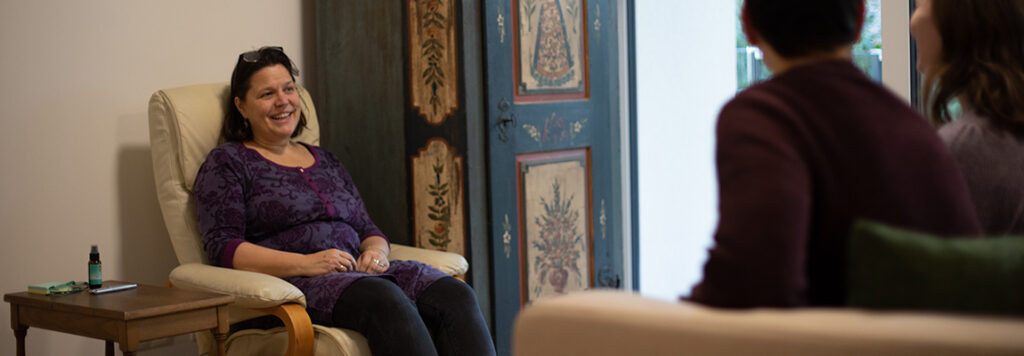
Couples face many challenges in their lives. Some challenges are related to societal change such as changes in the roles of men and women or to the high expectations connected with a romantic relationship. These challenges invite couples to reach new milestones in the development of their relationship times and again. All too often conflicts and breakups occur.
Couple therapy provides you with the support you need in order to maintain or re-establish the emotional contact despite the pressures of daily life. This can make it possible to see commonalities and differences more clearly and as a result respectfully develop new joint solutions. Issues that often make couples turn to therapy are:
- conflicts related to the division of everyday tasks;
- frequent arguing marked by fits of rage, withdrawal or even loss of the communication basis;
- challenges caused by changes in the context of phases of life such as childcare, professional activities or retirement;
- sexual issues;
physical or mental illness or death of a family member; - events related to the couple’s history or to the life of a partner prior to this relationship which were not sufficiently dealt with.
Unfortunately, it happens quite frequently that couples turn to counselling only when they want to decide to break up or deal with a breakup in dignity and without battle. This can be very important, of course, especially when the care of children needs to be settled. In my view, couple counselling does not have the goal to make a couple stay together under any circumstances. However, it is of course pleasing when couples seek support early enough when joint solutions are still possible.
A frequent issue is that only one person desires couple counselling, but the other does not. Maybe one can join the other for that person’s sake and make it possible to find out if couple counselling can be supportive for both partners after all. If this is impossible and if you remain the only one wishing counselling, individual counselling can also be of help.
During our initial consultation, we will discuss your concern and the organizational framework. Depending on the situation, it is possible that the three of us always work together or that individual consultations with one or both partners take place.
For consultations with both partners, I usually prefer appointments lasting 75 minutes, equivalent of 1.5 counselling units. This makes for a sufficient length of time for both partners to speak out on the relevant issue. Mostly, the ideal intervals between consultations are 2 to 4 weeks. Frequently, I ask couples to fulfill a task at home so that they can practice changes in their everyday life right from the beginning.
Costs
For couple counselling sessions of 50 minutes my charge is EUR 120 per couple, for 1.5 units EUR 180. Frequently, couple counselling does not qualify as medical treatment and is therefore not subject to payment by a Social Security provider. If it does count as medical treatment, you need to provide a document issued by your general practitioner certifying that you were examined before undergoing ambulant psychotherapy, called “Bestätigung über eine ärztliche Untersuchung vor Inanspruchnahme einer ambulanten Psychotherapie”.
Please also take note of the 48-hours-rule: If you cancel a scheduled appointment with less than 48 hours’ notice, you will be billed for half of my fee. Unfortunately this rule is necessary and customary among psychotherapists.




